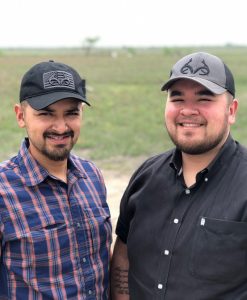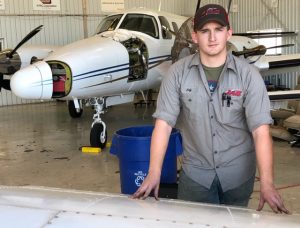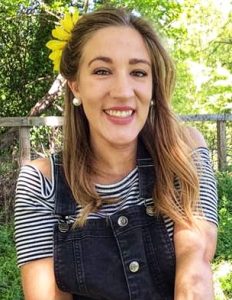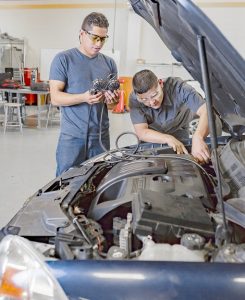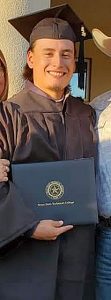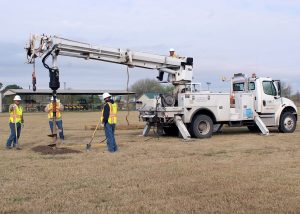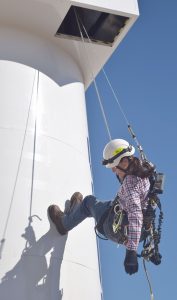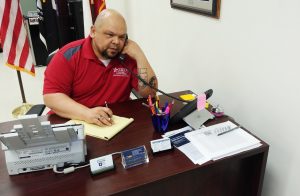(HARLINGEN, Texas) – Alvaro and Andy Juarez have more than a family tie; they also share an alma mater and workplace.
The brothers are graduates of Texas State Technical College’s Harlingen campus, and both have an Associate of Applied Science degree in Precision Machining Technology. Alvaro graduated in 2015 and Andy in 2017.
“I feel like Precision Machining Technology is the best program to major in because the process of making a functional block of aluminum, metal, plastic, etc., is very interesting,” Alvaro said. “Almost every product you look at in everyday life was part of a machining process, from something as small as a bottle cap to the components of a vehicle.”
The brothers are machinists at Raytheon Technologies in Dallas. Alvaro lives in Hurst, and Andy calls Irving home.
Alvaro said communicating with co-workers is key to maintaining product continuity during shift changes.
“Raytheon consists mainly of castings, or billets, and very close tolerances,” he said. “The main focus at work is safety and making sure you are running good parts and keeping scrap to a minimum. What I love most about my job is the complexity of the parts that I run, being able to figure out issues when they arise and being a mentor to co-workers when they need help.”
Alvaro’s inspiration comes from his wife and 4-year-old son.
“They motivate me to be the best I can be and keep me going daily,” he said. “Being able to provide for my family also keeps me motivated.”
Andy said he is currently operating a five-axis horizontal milling machine to do his work.
“A typical day at Raytheon includes a 12-hour night shift, interacting with co-workers, and running different parts and setups while learning new stuff every day,” he said.
Andy said he likes the challenges his job brings.
“I enjoy going to work knowing that every day at Raytheon there is something new to learn, especially when issues arise,” he said. “That is where I love my job — in being able to figure out the issue.”
Andy’s drive comes from pushing himself to be a great machinist.
“My motivation in life is to work hard and to have what I didn’t growing up, and to build a future for me and my fiancee,” he said.
The Juarez brothers grew up in Rio Hondo and are graduates of San Benito High School. They said they miss their family, fishing, food and being outdoors in the Rio Grande Valley.
Alvaro said he was inspired to study precision machining because a friend graduated from TSTC and recommended it.
“It caught my attention because I love math, and that is mainly what machining is — numbers,” he said. “TSTC has a good reputation of helping you find a job once you complete your certificate or associate degree, and it being affordable is definitely a plus.”
Andy said his brother influenced his decision to study precision machining.
“I was advised by my brother that Raytheon was a great company to work for,” he said. “My brother and I are very good at math and figuring out problems, no matter how long or difficult the situation may be. He said the PMT instructors at TSTC were very helpful and made themselves available with any questions or concerns.”
For more information on Texas State Technical College, go to tstc.edu.
